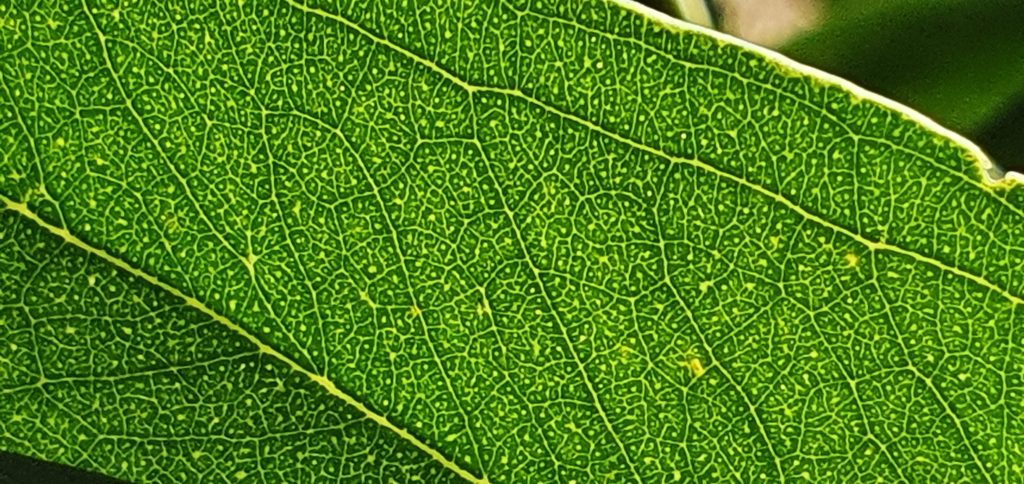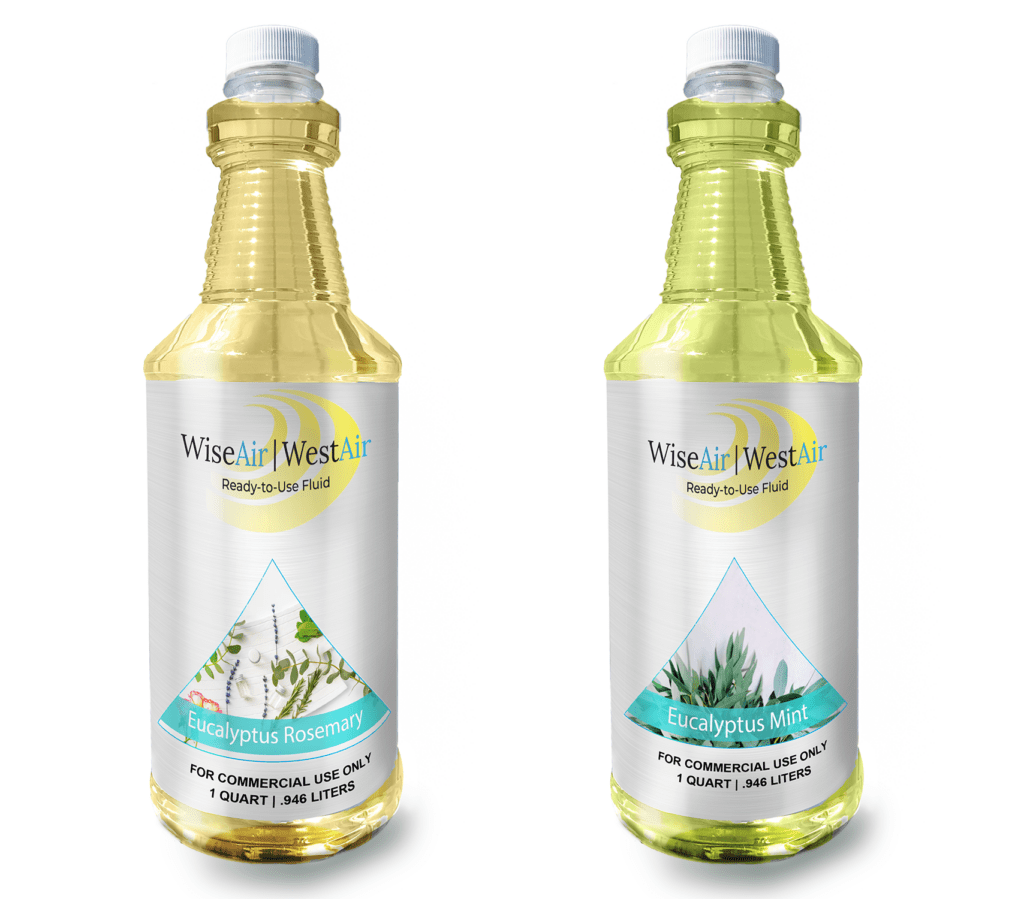Why Is Eucalyptus Oil So Popular And Where Does It Come From?
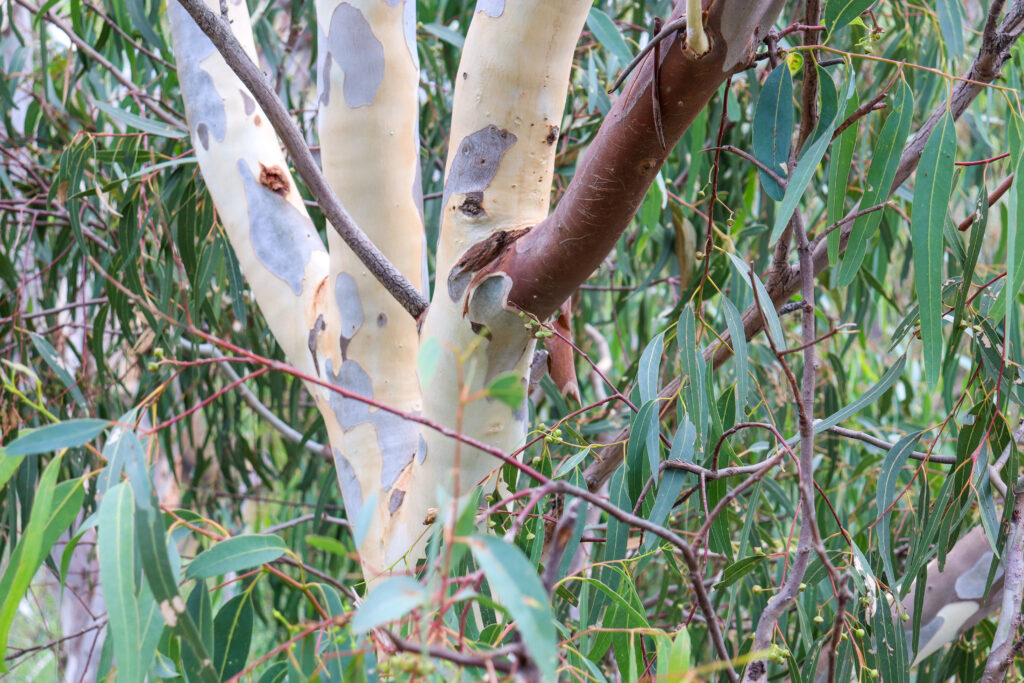
You’d be surprised how common eucalyptus oil is in your everyday life. Due to its wide-ranging health, therapeutic, antibacterial and antiseptic properties, you can find eucalyptus oil in your OTC medications, cleaning products, beauty products and even in AeroWest fragrances. Discover where eucalyptus comes from, how it’s made, its benefits, and how we use it.
Uses of Eucalyptus Oils
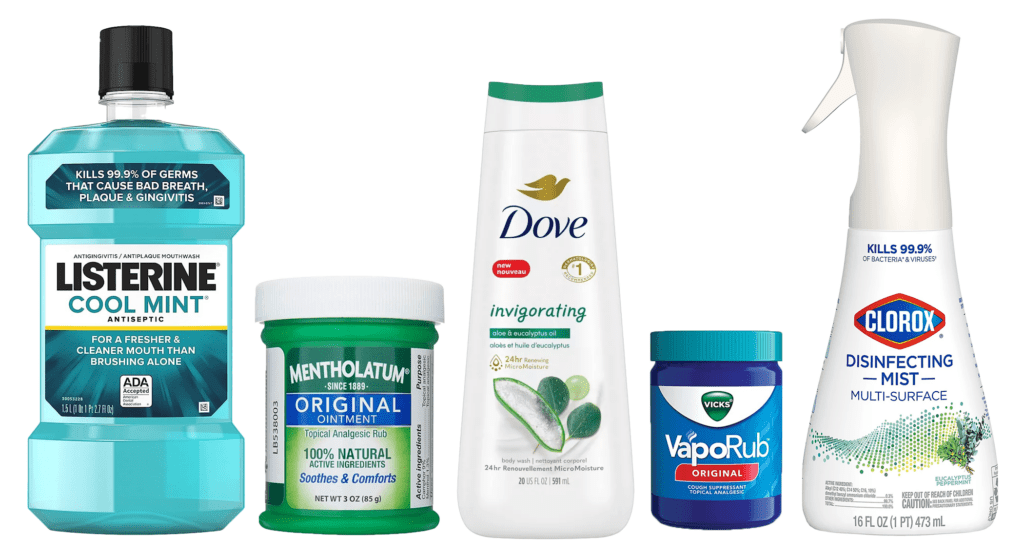
Eucalyptus oil has the amazing ability to kill or inhibit bacteria including TB (Mycobacterium tuberculosis) and the bacteria known as the MRSA (methicillin-resistant Staphylococcus aureus) which currently causes huge cross-infection problems in hospitals.
Many studies have highlighted the powerful, healing properties of eucalyptus oils. This was long-known by the Aboriginal people of Australia, who used it to heal wounds and treat infection.
Eucalyptus can also kill certain fungi and viruses. Additionally, studies found that it helps cough by loosening phlegm. Eucalyptus oil is rich in cineole, an antiseptic that kills the bacteria that causes bad breath. When used in antiseptic mouthwash, it helps prevent plaque and gingivitis.
In summary, Eucalyptus oil can provide the following benefits:
- Antimicrobial properties
- Antibacterial properties
- Antioxidants
- Stress reduction
- Natural anti-inflammatory
- Treats colds and respiratory issues (relieves cough, congestion, sore throat, losens phlegm, treats bronchitis)
- Dental benefits – fights bacteria that causes tooth decay and gum disease
- Treats fungal infections
- Treats wounds
- Stimulates immune system – may relieve arthritis pain
- Lowers blood sugar
- Treats dry skin by increasing its ceramide content
Therapeutic Benefits of Eucalyptus in Hospitals
Inhaling the scent of eucalyptus has been proven beneficial within hospital waiting rooms and recovery rooms. It is widely believed to decrease symptoms of stress. Eucalyptus contains eucalyptol, which has been found to possess anti-anxiety properties.
Hospital studies have found the following patient benefits:
- 62 healthy people experienced significant reductions in pre-surgery anxiety after inhaling eucalyptus oil.
- Inhaling eucalyptus oil for 30 minutes has been associated with lower blood pressure in patients after knee surgery, which suggests that it has a calming effect.
- Eucalyptus decreases the activity of the sympathetic nervous system and increases the activity of the parasympathetic nervous system, which promotes relaxation.
- 52 people who had undergone knee replacement surgery found that inhaling eucalyptus oil dissolved in almond oil for 30 minutes daily significantly decreased perceived pain and blood pressure levels, compared with inhaling pure almond oil
Products that contain Eucalyptus oil include:
- Cold & cough medicine
- Pain-relieving creams
- Wound-healing ointments
- Antiseptic mouthwash
- Toothpaste
- Insect repellents
- Hand Soaps
- Body Wash
- Cleaners
- Deodorants
- Teas
- Beauty Products
- Aromatherapy
- Perfumery
Pure eucalyptus oil can be toxic when taken orally. However, many well-known over-the-counter products use eucalyptus-containing formulas. You’ve likely used several OTC products containing eucalyptus: Listerine, Mentholatum and Vicks VapoRub.
This does not include the uses of the tree itself, which is planted as windbreaks for agriculture, firewood, fuel and timber in the construction of buildings and fences.
How Is Eucalyptus Oil Made?
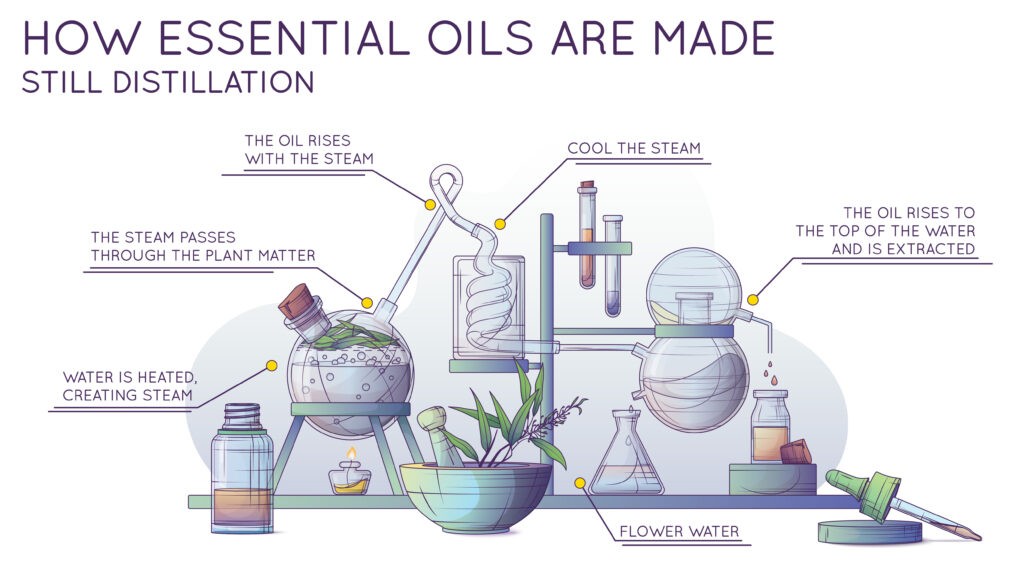
The process of extracting oil begins with fresh or partially dried eucalyptus leaves. Commonly used species for oil production includes E. globulus, E. radiata and E. citriodora. Steam distillation is the most common method to extract oils from the plant. Steam distillation uses a carefully calibrated combination of pressure and steam. The leaves are placed in distillation machinery that pushes steam or water through the plant material. The oil and other components rise and are funneled into a condenser. The condenser cools the vapor to a liquid. Then, the oil floats on the water, where it is siphoned off.
Facts About Eucalyptus
Loved by humans and koalas alike, eucalyptus trees are famous for their fragrant leaves, health benefits and rapid growth.
There are over 600 species of eucalyptus, which includes flowering trees and shrubs.
Native Range of Eucalyptus

Eucalyptus is native to Australia. In fact, about 3/4’s of Australian forests are eucalypt forests. Native eucalyuptus species are also found in Tasmania, Indonesia, the Philippines, Papua New Guinea and surrounding islands. Eucalyptus species are widely cultivated in temperate climates (including the Americas) as shade trees and in forestry plantations.
Eucalyptus fossils were found in Patagonia, Argentina, dating 51.9 million years ago!
How Tall Does Eucalyptus Grow?
Eucalyptus ranges from 6 – 200 feet in height. However, there are species that can grow even larger.
In Australia, eucalyptus is also know as gum tree. The giant gum tree also known as Australian Mountain Ash (Eucalyptus regnans), grows to an impressive height of 300 feet and a circumference of 24.5 feet! Eucalyptus regnans is the tallest flowering tree in the world. Most species are evergreen, with leathery leaves containing fragrant oils.

Eucalyptus Leaves: The Source of Eucalyptus Fragrance
Eucalyptus leaves are jam-packed with tiny oil glands that secrete the fragrant oils. Holding the leaves up to the sun, you can see the tiny oil glands with the naked eye. That’s what you see below. These tiny white or yellowish dots on the leaf surface are the oil glands.
The leaves contain flavonoids and tannins; flavonoids are plant-based antioxidants, and tannins may help to reduce inflammation.
The Blue Gum (Eucalyptus globulus) is the most widespread of the highly aromatic eucalyptus species. E. globulus is the primary source of genuine eucalyptus oil worldwide.
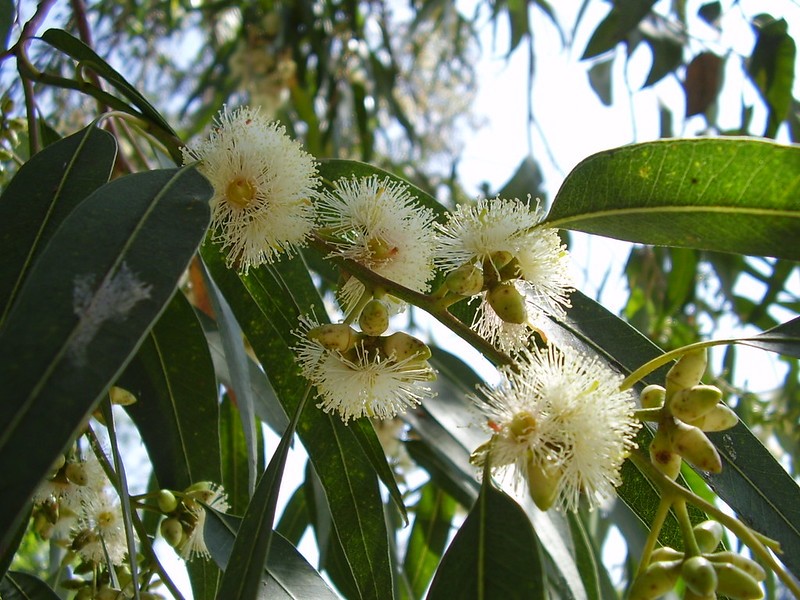
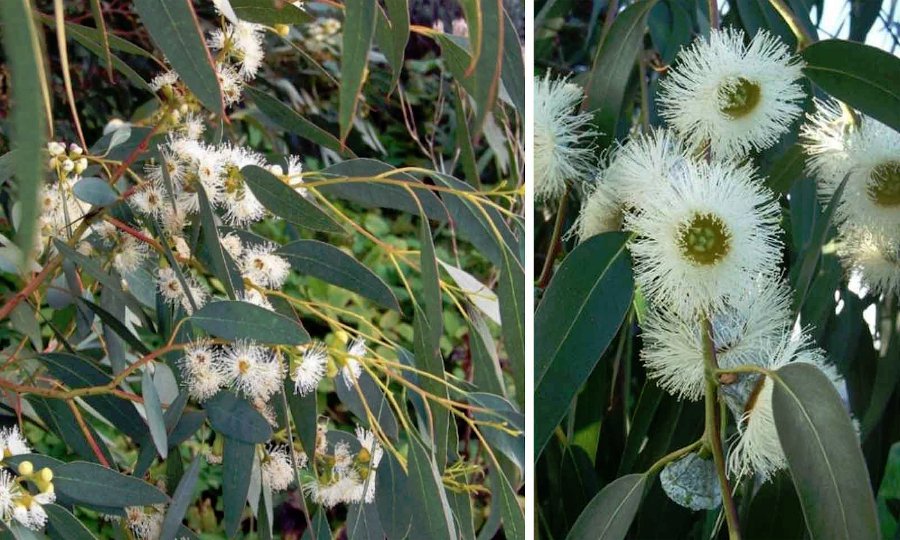
Do all eucalyptus trees smell the same?
The scent of different species varies subtly, with some species having stronger scent than others. Eucalyptus globulus, the species used in AeroWest fragrances, is one of the most fragrant species. The widely recognizable eucalyptus scent comes from cineole, or eucalyptol. It’s a chemical compound that gives eucalyptus their signature scent. E. globulus is a rich source of phytochemical compounds as flavonoids, alkaloids, tannins and propanoids.
AeroWest Fragrances Containing Eucalyptus Oils
We love eucalyptus. It’s a popular, healing scent that creates fresh, natural scents to enhance indoor environments. Their remarkably clean scent makes them ideal for use in hospitals, nursing homes, and hotels. In fact, the luxury, wellness hotel chain, EVEN, uses an upscale eucalyptus scent in all hotel rooms, with the fragrance infused into their pillow cases, linens, and bath products.
Our Bestselling Eucalyptus Fragrances:
- Eucalyptus Rosemary – Clean, herbaceous scent of eucalyptus and rosemary with notes of green balsam, bergamot, soft jasmine, and vetiver.
- Eucalyptus Mint – Invigorating, fragrant eucalyptus infused with a touch of refreshing mint
- Falling Leaves: This bright, crisp fall fragrance is a customer favorite, featuring notes of balsam, pine needle, apple, eucalyptus & spice
- Citrus Grove – A bright, fragrant orange and sweet orange blossom, infused with a touch of eucalyptus, like an orchard breeze
- Redwood Forest – Bring the great outdoors in with this ultra woodsy fragrance of warm cedar & bright eucalyptus
Try AeroWest’s Eucalyptus Fragrances
To try these fragrances, contact your AeroWest Service Rep or call us directly at (225) 302-5570. We look forward to connecting you with your perfect fragrance.


